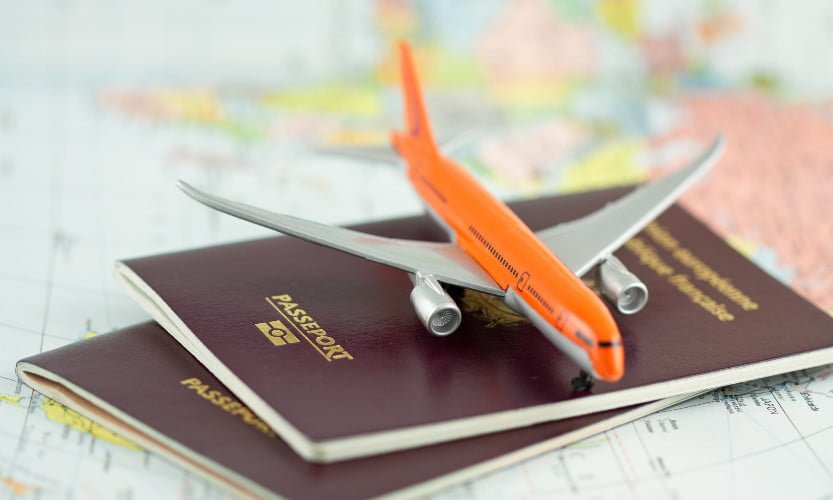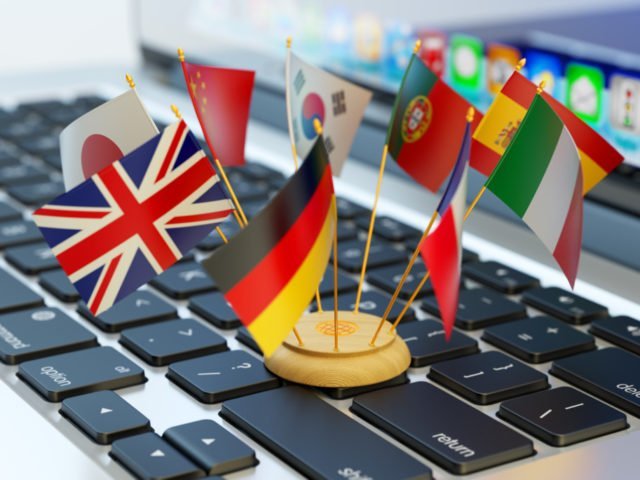Many authors dream of seeing their books in print and on shelves in leading bookstores across the country. However, your book’s circulation, and your dream, don’t need to be limited by national boundaries or language itself!
Translation is a great way to reach wider markets in different countries and will help you to diversify your revenue stream for your novel. It’s one of the most popular forms of intertextuality.
If you’d like to publish in another language, read on to learn more about this little known process.
In this article, I’m going to walk you through the path to achieving translation and figuring out international rights. I’ll define foreign rights, explain why foreign rights agents are important, and detail how foreign rights and translation work.
To help give you expert advice, I’ve chatted with foreign rights agents Thérèse Cohen and Lucy Barry who both have an intimate understanding of the world of translation.
What Are Foreign Rights?
The first step to understanding translation is to learn more about the rights that you own as an author. Foreign rights dictate where you can distribute your manuscript and which languages it can be translated and sold in. The main rights you’ll have to concern yourself with are translation rights and territorial rights.
Rights are sold in both languages and territories, so translation rights deal with the language your book can be published in and territorial rights are associated with the markets where your book is sold.
Thérèse explains territorial rights using the example of publishing a book in France or the UK. The most straightforward deal might be selling French language rights in France, or English rights in the UK, but you might also have English readers in the US or readers reading in French in Belgium. To help ensure that your book might reach a wider audience around the world, you can sell your world rights to publishers. This means that your book can be distributed anywhere in the world with no restrictions. However, it might benefit you more to break up your rights into territories to increase your profit.
For example, if you’re working with an English publishing house in the UK, you can sell them UK publishing rights to distribute the book throughout the country. This then gives you the opportunity to approach publishers in the US to sell the North American rights, which will then allow then to re-publish your book and distribute it in the US and Canada. This is the reason you might see different covers and publishers for the same book in the US versus the UK. It’s always interesting to browse the internet to find different cover variants in other languages or countries!
Alternatively, your publisher might insist on world English rights, which will then give them the ability to sell your book all across the English speaking world, such as in the UK, North America, and Australia. This leaves you with the ability to negotiate translation rights for international markets. Selling foreign rights is something that you negotiate with your agent and will be incorporated into your publishing contract.
If you’d like to achieve translation in a foreign language, you’ll have to sell translation rights to foreign publishers. You can do this on your own, or with the help of your domestic publisher. These rights determine which languages a publisher might publish your book in and gives them the exclusive right to distribute it in that language. You’ll have to negotiate territorial rights alongside this to ensure that your book can be sold in the appropriate markets. Foreign rights might seem tricky, but with an agent by your side, you’ll have no problem understanding the complexities of translation publishing.

Why Are Foreign Rights Agents Important?
If getting your book published in English sounds hard, you might think that publication in another language is even harder! You’re right to assume that it’s challenging, but there are specific industry members who are here to make it easy – rights agents. Rights agents work with authors to find international publishers to translate, print, and market their books. These agents are looking to maximise sales across different countries and have an understanding of what types of books work well in other markets. These agents have in-depth knowledge of the international publishing landscape. They’re also looking out for your interests by working to negotiate the best possible advances and royalties.
All agents have knowledge of rights, but foreign rights agents are more experienced in selling foreign rights. Most agencies will have rights agents working for them, so it’s in your best interest to consider finding agent representation in order to achieve translation into other languages.
What Do Foreign Rights Agents Do?
Lucy Barry describes the role of a rights agent as someone who works to ensure that their clients’ international publishing experience is as smooth as possible. She explains that, ‘Rights agents work to place their authors’ titles with international publishers all around the world. Normally, rights agents focus on selling into certain markets, where they have specialist knowledge and longstanding relationships with international publishers.’
Foreign rights agents try to keep in constant contact with editors around the world and meet with them regularly to understand the tastes and trends of different international markets. The agent will work to negotiate the best publishing deal for their authors as well as the advance and royalty rates across all formats. Once the deal is completed, foreign rights agents also handle international press requests, author visits for promotional tours, and translator queries.
Considering all the work that rights agents do, it’s highly worth working alongside them. These agents are experienced in achieving translation from the English language to a new language and even any foreign original language into English. They network with publishing houses and editors at international book fairs, which gives them a strong idea of the tastes of a foreign publisher and whether they’d be interested in translating your book. Having someone on your side who knows how to sell foreign rights is a huge help.
How Do I Find A Foreign Rights Agent?
Most foreign rights agents are experienced with rights, so you’ll query agents as you would normally. However, it’s important to communicate early on with your agent that you’re interested in translation. This way, the agent will know that you’re interested in maintaining translation rights for a deal outside your country. UK agencies will often have rights departments that will help query international publishers for a potential translation rights sale.
You can get started on your hunt for an agent using our AgentMatch database. This will allow you to search a massive list of all the agents in the US and UK by genre in order to find the best agent for your book. Keep an eye out for agents with international experience or those who are associated with established agencies.
Which Rights Do I Keep?
It’s highly advisable to get a foreign rights agent who can help assist you with this decision making! Agents will be able to give you advice on whether or not to sell your translation rights to a publisher. Sometimes the publisher can go on to sell translation rights to publishers in different countries, and having an experienced agent by your side to help negotiate royalties is always helpful. If you’re going at it alone, this is a conversation you should have with your publisher. If they give you the option to retain translation rights, you can query international publishers about taking your book on. However, it’s recommended to wait until your book achieves English publication first.
If you don’t have a foreign rights agent, Lucy recommends trying to hold on to translation rights so that you can exploit these separately from the original deal. When you do receive an offer from a publisher, it may be worth reaching out to an agent, who could advise you. She explains that ‘without an agent, it is important to be realistic about the international potential of your book. Many publishers have in house rights teams who will have the international connections to sell your book around the world.’

How Do I Know If My Book Will Sell In Other Countries?
It’s always tricky to predict a book’s success, and selling in a foreign market definitely complicates this even further. The good news is that rights agents are communicating with co-agents and foreign editors all the time. This gives them insight into what different markets are reading and whether an international publisher might want to take on your book.
When asked about selling into different territories, Thérèse stated that ‘Readers are much more uniform in what they read, especially in Europe, now than in the past, but there are still some big differences between what does and doesn’t sell in fiction and non-fiction, and we have to be mindful of that.’
Lucy helped to clarify how agents can get a better idea of what books work in other markets. She explains that ‘in certain territories, rights agents will often work with a co-agent to place the book in a market. Co-agents are frequently relied upon in the Asian markets and often in Eastern European territories where they work on the ground and speak the local language, this enables us to find the very best publisher and agree the best deal for our clients all over the world.’
Since co-agents and editors speak the language of the country that they’re in, they’ll be able to evaluate your book’s sales potential in foreign markets and work with your agent on a sale. International book fairs allow the international publishing world to mingle and can often result in lifelong partnerships between agents, editors, and publishers from different countries.
Certain books sell better in translation, but genre popularity differs from market to market. Children’s picture books are famously popular in translation, so if you’re a children’s author this is a route that it might be beneficial to consider pursuing.
Foreign Publishers And How They Work
Foreign publishers will work alongside you to help select translators and market your book in their country. The process doesn’t differ much from that of your domestic publisher aside from the fact that they are producing a new translation of your work. There will be some differences in the royalties you receive as well as your advance, but this differs from publisher to publisher.
One of the biggest questions you might have as an author is how translators are selected. Lucy explains that ‘Publishers normally have long standing relationships with reliable translators who have experience translating manuscripts in a specific genre or field. Certain authors may have a dedicated translator in each territory, and others may have been translated by many different translators. As an author, you can always discuss this with your rights agent or international publisher, who will be able to explain why they recommend a particular translator and send information on the books they have previously translated.’
It can be a little worrying to see your book move from its original language to one you might not understand, but it’s worth noting that translators are contractually obligated to accurately translate your work.
The publisher might also re-design your book to fit the tastes of foreign markets. This might include creating a new cover, changing your title, or updating illustrations. Sometimes titles might even differ across English speaking countries. For example, Leila Slimani’s popular novel Lullaby was re-named as The Perfect Nanny to better suit American audiences.
What If I’m Already Published?
If you’re already traditionally published, you’re off to a good start as you’ve already set your roots down in the English language publishing scene.
To move towards translation, Lucy Barry recommends closely reading your contract with the original publisher. If your book has been sold in a world all language deal, the publisher owns the translation rights and should be exploring ways to exploit these rights. If it’s a world English language deal, the publisher will have the right to publish around the world in English and may sell the rights to a UK or US publisher on your behalf, but translation rights will be controlled by you.
It’s worth having a conversation with your publisher about your contract and your options.

Translation Rights When You’re Self-Published
Those who aren’t with a traditional publisher might wonder if it’s possible to publish a work in translation if you’re self-published. The answer here is yes! However, as with traditional publication, you’ll want to find a foreign rights agent to represent you first. You can query agents internationally or work to find a co-agent that has partnered with a UK agency. Alternatively, you might be able to strike out on your own and query foreign publishers directly. Just be sure to defend your query with comparison titles and your self-published sales figures, and do some research on your genre’s popularity in international markets.
If you’re looking to query a publisher on your own, you might want to consider finding your own translator to translate a sample of your book. However, this isn’t always required since many publishers read in English. When querying a publisher directly, be sure to follow their guidelines for submission carefully, as if you were querying an agent.
What Do I Do If I Want My Book To Be Translated Into English?
Your first step to achieving English translation is to contact your publisher to determine who holds translation rights. From there, you can consider translating a sample of your book into English. As I mentioned above, translation into English isn’t always necessary, but it can help agents who only speak English get a taste of your book! From there you can query agents in your home country or in the US and UK. There are plenty of agents who specialise in translation, so it’s important to research thoroughly when querying.
Once you’ve found an agent, they’ll begin work on finding you a publisher or a translator to sell your foreign rights to. Some publishers prefer that a book is translated in full before it is submitted and others prefer a sample. In some cases, your publisher might have their own translators that they prefer to use.
If you aren’t published, you may want to start by querying publishers and agents in your country. Alternatively, you can branch out and query agents in the US and UK after translating a sample of your manuscript.
What Can A Translator Do?
Increasingly, we’re starting to see translators get involved with some of the tasks originally assigned to agents. If you’re writing in a language other than English and can’t find an agent to help you sell foreign rights, you might decide to turn to a translator. It’s worth doing some research to identify UK or US translators who specialise in literary translation out of your native language. These literary translators often have a good understanding of the US and UK market for translation and might be able to work alongside you to help you find an agent or query publishers on your behalf.
What Is The Market For Books Translated Out Of English?
It’s worth knowing that more books are translated out of English than into it, so it can be quite difficult to achieve translation in the US or UK. That being said, there are a number of publishers dedicated to publishing translated writing and sales of works in translation continue to grow. Some academic publishers are also working to create their own translated fiction lists. As the market for translation grows, so do your opportunities. In fact, a recent Man Booker study has found that sales for translated literary fiction have increased, with authors like Haruki Murakami, Elena Ferrante, and Karl Ove Knausgaard contributing to the rise in sales.
If you’re interested, below are some great US and UK publishers who have extensive translation lists to check out:
- Comma Press
- Pushkin Press
- Fitcarraldo Editions
- Granta
- Two Lines Press
- Open Letter Press
- Greywolf Press
- Europa Editions
- Oneworld Publications
If you’re an English speaker and you’re hoping to start reading more in translation, you might be interested in having a look at the Booker International Prize winners. This is a great way to get started on reading translation, as the prize seeks to highlight some of the best books written in languages other than English. Translation can help diversify your reading list and expose you to some excellent authors.

Get Your Rights Right
Many of the steps to achieving publication in another language are made much easier by having an agent. While finding a foreign rights agent can be challenging, it’s certainly worth the effort. We recommend using our AgentMatch database to get started on your search.
Seeing your book published in another language is extremely rewarding, and while the process might be long and time-consuming, selling foreign rights is a great way to increase your market reach and earn more from a single manuscript.
Thérèse encourages writers ‘to enjoy the bonus that is having a translation deal (getting a copy of your book in a different language will never get old!)’, but to not let it stress you out or put additional pressure on you. If your book sells, it sells, and that’s brilliant, but if it doesn’t, that’s fine too. Don’t try to change what you write or the way you write to suit a different market, if you’re doing well selling in your home market, that is what ultimately matters the most.’
Frequently Asked Questions
Who Owns The Translation Of A Book?
Translated works are incredibly valuable texts, but in terms of who owns a book’s translation, it can vary. Sometimes, the translator holds the copyright for the translation and the original author holds the copyright for the original text. Other times, the translator does not own the copyright for their translation, and the publisher or original author does instead, though many people feel that translators should have more- or all- of the ownership of their translations. However, a translator can claim copyright ownership of the translated version of a book they have translated from a piece that is in the public domain.
Do I Need Permission To Translate A Book?
You cannot translate a book without the author’s permission, as they are the copyright holder for the text. In order to translate a book, written permission from the author is often required, or, if the copyright is held by the publisher, you need to contact them instead.
Are Book Translations Copyrighted?
Book translations are copyrighted, but the copyright is not always held by the translators themselves. Translators have the same rights over their work as authors, which means they are entitled to both the copyright of their translations and proper acknowledgement of their work. However, translators are often asked to cede copyright by some of the bigger publishers, as translation is seen as costly and risky, so they don’t always hold the copyright to their own translations.
Do Book Translators Get Royalties?
Translators are entitled to both copyright and royalties, though whether they maintain the copyright, and receive a fair proportion of the royalties depends on individual circumstances. Some of the big publishers don’t provide translators with a fair amount of royalties, though translated works are generally produced by indie publishers who tend to have more equitable practice in terms of ensuring translators have both the copyright and sufficient royalties.
Jericho Writers is a global membership group for writers, providing everything you need to get published. Keep up with our news, membership offers, and updates by signing up to our newsletter. For more writing articles, take a look at our blog page.










